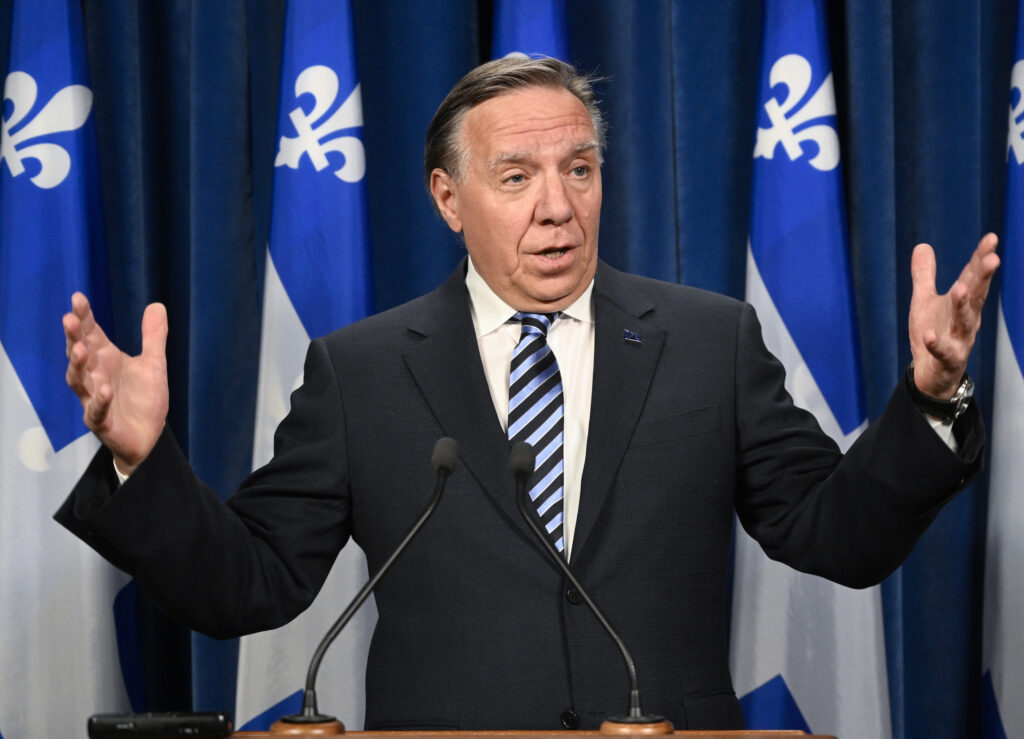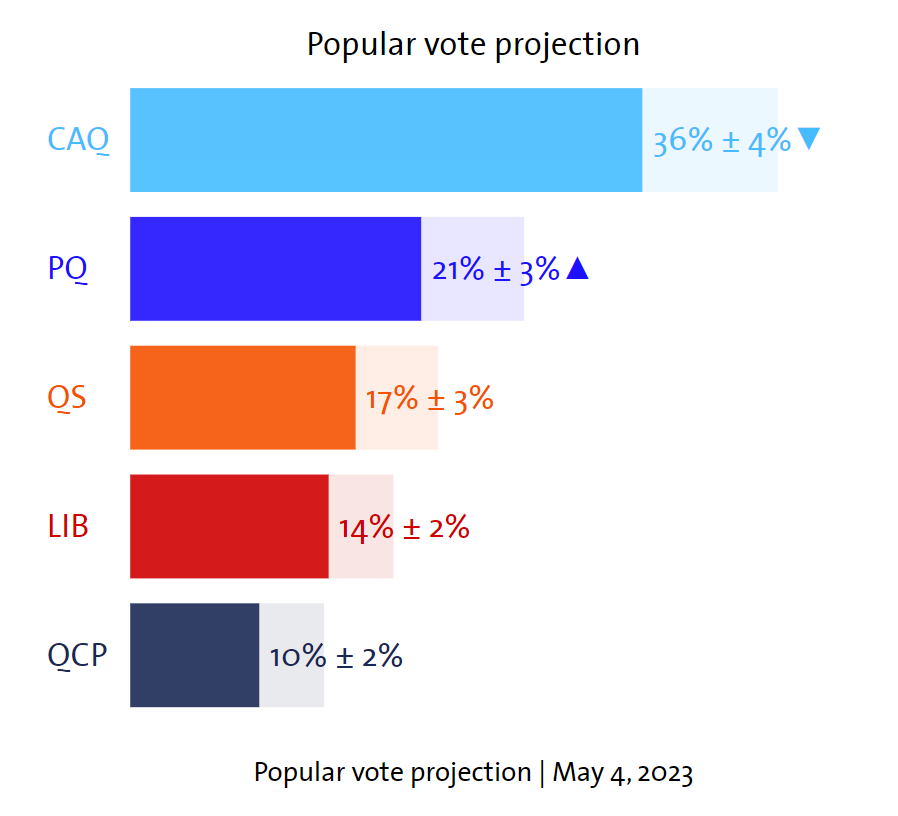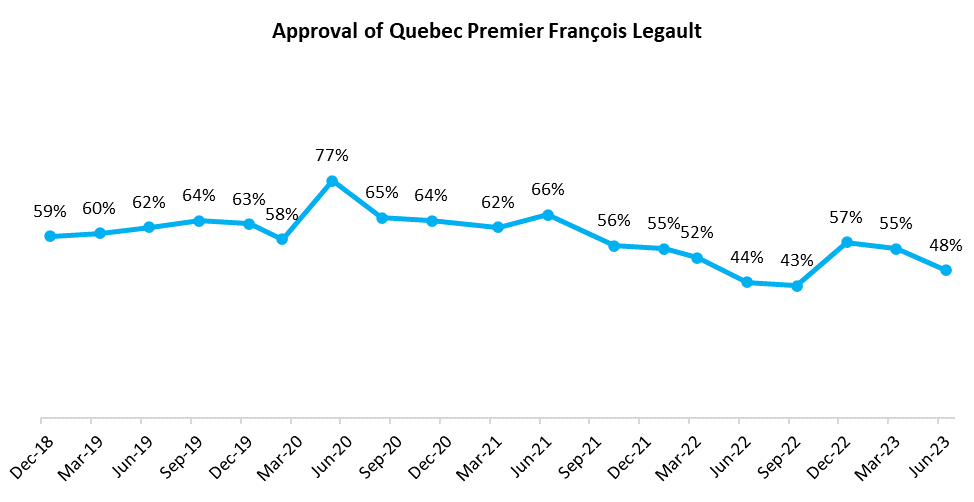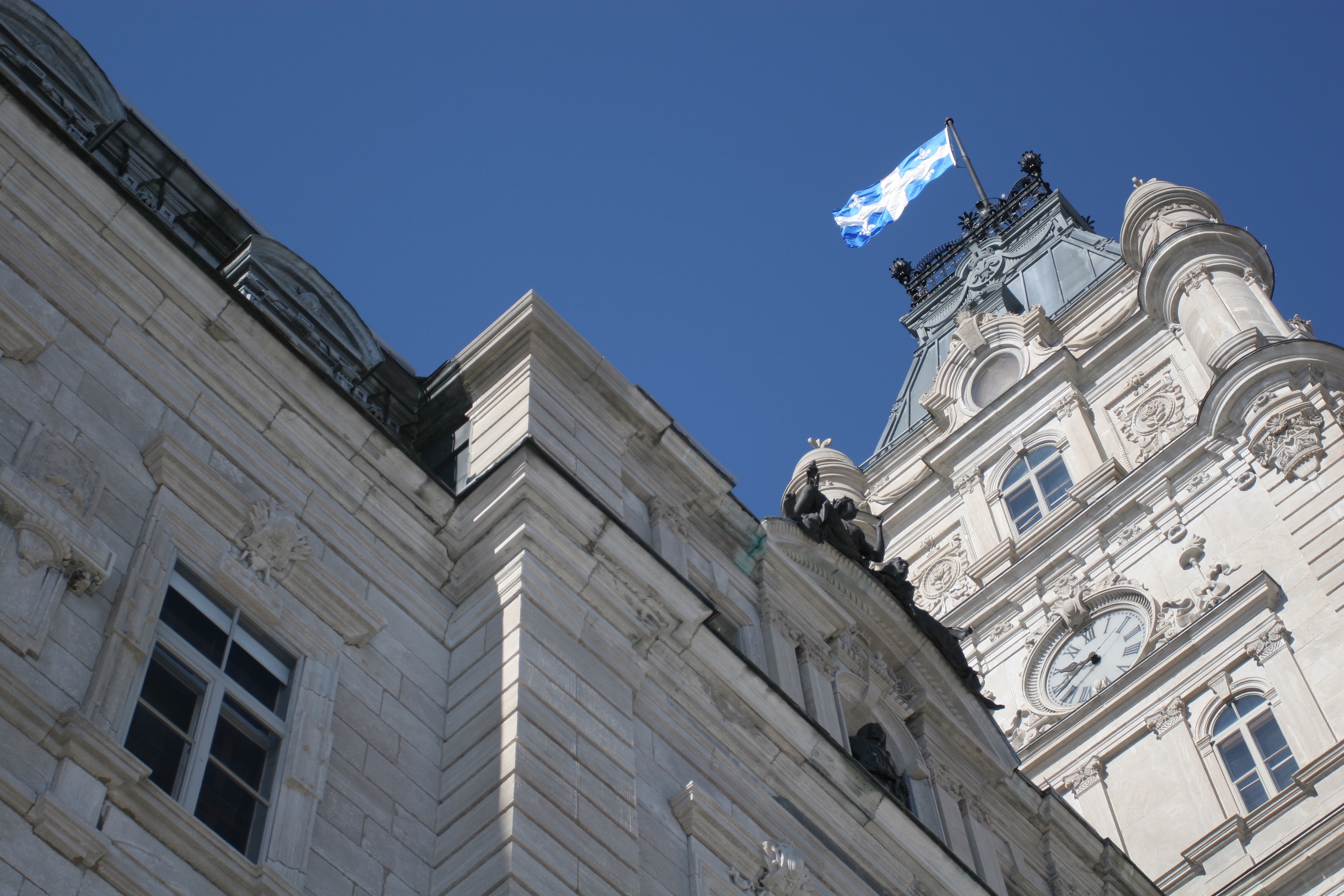The National Assembly rose on June 9, following 11 days of intensive sittings to mark the end of the legislative session. The session began in November and kicked off the CAQ’s second consecutive majority mandate following their re-election in October.
To conclude the session, Legault addressed the public to express his pride in the progress made on his government’s key priorities. These included the launch of Quebec’s battery industry, continued efforts on decarbonization and sustainability, increased action to protect the French language and the introduction of reforms in health and education.

Public Sentiment Towards the CAQ and Resurgence of the Parti Québécois
Premier Legault has generally been viewed favourably by both CAQ members and Quebecois voters. He recently received 98,61 % of support from the members of his party during the CAQ Convention in Sherbrooke. At the convention he focused his remarks largely on immigration, French language, energy efficiency and electricity costs.
Simultaneously, CAQ Members of the National Assembly are receiving the worst polling results the party has seen since 2018. In a poll by Léger, on May 1st results showed CAQ support would drop from 40 per cent to 36 per cent in Quebec since February, and 14 per cent in the capital region falling from 40 per cent to 26 per cent. Legault saw his approval ratings drop to 48% in a national poll conducted by Angus Reid – a notable departure from his relatively high approval ratings over the last five years.


Government Priorities
Green Economy and Energy Transition
As Legault’s most powerful cabinet Minister, Fitzgibbon has been tasked with leading important elements of the green economic transition under his enhanced role as Minister of Economy, Innovation, and Energy. The super-ministerial portfolio was created following the 2022 election and places key economic and energy policy issues, including Hydro-Quebec, within Fitzgibbon’s mandate. The arrival of Michael Sabia, the former federal Deputy Minister of Finance, as CEO of Hydro-Quebec on August 1st will certainly realign government priorities and aspirations with energy development at Hydro-Québec.
There is consensus that Quebec’s economic success in the coming years will be defined by the strategic direction taken in the transition to a green economy and the evolution of Hydro-Quebec. The current priority is ensuring there is energy available for Quebec’s strategic sectors and GHG reduction targets.
The new CEO of Hydro-Quebec and Min. Fitzgibbon have also shown an interest in exploring alternative energies such as biofuel, hydrogen and wind to support the green economic transition.
Electrification and Critical Minerals
Also central to the CAQ government’s economic priorities and GHG reduction strategy is the development of a battery and critical minerals supply chain. In May 2023, Fitzgibbon and Legault announced the inauguration of the third innovation zone, dubbed the Energy Transition Valley, which will produce battery materials necessary for Quebec’s electrification and GHG reduction goals.
Government commitments to supporting the development of a critical minerals and battery supply chain have prompted an increase in mining claims across the province, raising concerns from environmental groups, municipalities and indigenous communities. New electric vehicle production and sale targets announced in May will only add pressure on Government and industry.
Environment
The CAQ has promised to cut greenhouse gases by 37 per cent from 1990 levels by 2030 and for the province to have net-zero emissions by 2050. In May, Premier Legault and Environment Minister Benoit Charette announced an update to the Plan for a Green Economy, reiterating commitments to decarbonizing Quebec’s economy.
Premier Legault has stated throughout the session that the only way to reach those goals is to have more hydro-electric dams. The environmental impact of major projects is of growing interest to civil society, academia, eNGOs and indigenous group. This has led to increasing disputes in the permitting and approval process.
The Government also created a Blue Fund with a budget of $650 million to protect the province’s waters, and to invest $120 million in the forest industry and $50 million in sustainable agriculture.
Health
Health Minister Christan Dubé has been leading the province’s sweeping reform of the healthcare system. The pandemic rendered systemic inefficiencies and gaps in care more visible, prompting commitments from the CAQ to overhaul the old system in favour of one that promotes regional management under a centralized agency. Santé Quebec would absorb many of the Health Ministry’s current responsibilities. All health reforms including this one has prompted reactions from across the political, legal and health spectrums. Santé Québec legislation should be finalized in fall 2023 for implementation in 2024.
The CAQ made some progress on other health-related commitments, like training for healthcare workers and the modernization of technological infrastructure in hospitals. More action is required to tackle ongoing staffing and doctor shortages.
French language and identity
Premier Legault has grown increasingly concerned with the decline of the French language in Quebec. With the goal of increasing the percentage of French speakers in the province, the National Assembly passed Bill 96, An Act Respecting French, the Official and Common Language of Quebec, in May. The law will place increased requirements on public and private sector to conduct business in French.
The government has also announced its intention to modify the immigration system to increase francization rates in the province. They launched a program to attract francophone skilled workers and committed to undertaking a revision of immigration thresholds, entertaining the possibility of increasing levels from 50,000 to 60,000, with a focus on accepting French-speaking applicants through the economic stream.
Looking ahead
In the fall, as the CAQ enters the second year of their mandate, they will be focused on delivering on campaign promises. In the fall, legislative priorities will include introducing a clean energy bill and passing the healthcare reform bill.
Charting a path for Quebec’s economic development and socioeconomic future will be a major theme. The CAQ will have to balance plans to “revolutionize Quebec’s contemporary history” through the province’s largest industrial transition in decades with social projects in health and education.
